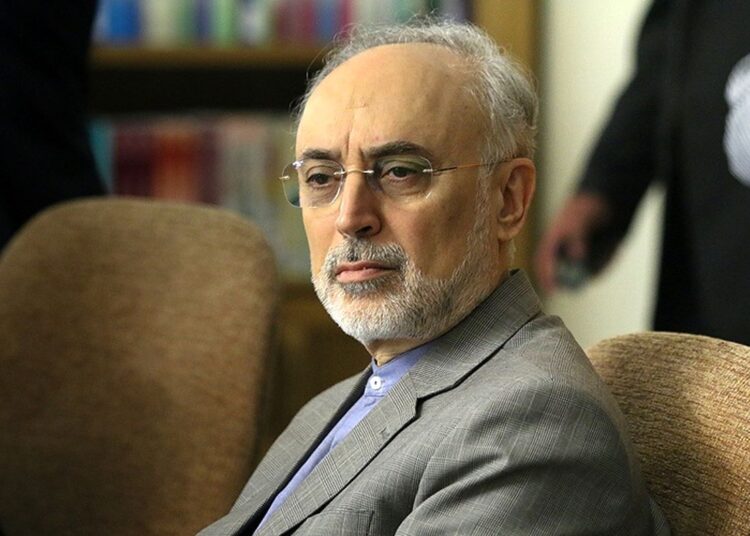Ali Akbar Salehi, the former foreign minister and nuclear chief of Iran, has offered quite a different glimpse into one of the paramount taboos in Iran’s foreign policy over the past four decades: political negotiations with the United States. In a rare display of openness, Salehi explicitly called for the initiation of a “comprehensive political dialogue with America.”
During an interview with Entekhab’s website, the former foreign minister of Iran highlighted the instances of direct talks between Iran and the United States, ranging from the Afghanistan war and the Iraq war to prisoner swaps and the critical nuclear negotiations. Despite these encounters, Salehi underscored the conspicuous absence of substantial political negotiations that encompass a broader spectrum of dimensions. “Against the backdrop of the prevailing regional and international conditions”, Salehi deemed the present moment “propitious for fostering an all-encompassing political dialogue that involves Iran and the West, stretching across Europe and the United States.”
Drawing attention to the complex historical dynamics between Iran and the United States during the past 44 years since the Islamic Revolution, Salehi lamented that these relations had been tarnished by a series of negativities. Salehi contended that the United States consistently erred in gauging the intricacies of Iran’s internal developments, “a critical misjudgment that led to misguided policies towards Iran both preceding and subsequent to the Islamic Revolution.”
In highlighting historical grievances, Salehi unequivocally posited, “the 1953 coup orchestrated by the United States diverted Iran from its political path”. He underscored that American officials themselves have admitted their complicity in this incident. “Consideration could be given to the confession of Mrs. Madeleine Albright, a former US Secretary of State, as an apologetic acknowledgment of the US role in that coup”, he said.
Bringing further nuance to his analysis, Salehi contended that the American desire to contain the Islamic Revolution, fueled by their “limited understanding” of its complexities, drove them to employ “a diverse range of conspiratorial tactics.” However, Salehi also argued, “Iranians should have engaged with the American embassy within the parameters of diplomatic relations.”
Salehi revealed that during his tenure, both the Chinese and the Russians urged Iran to recalibrate its relationship with the United States, with the aim of resolving their respective economic concerns vis-à-vis Iran. “Evidently, global dynamics have undergone transformations, with the war in Ukraine assuming heightened significance. Additionally, China’s pressing energy requirements have prompted it to rapidly forge agreements with Persian Gulf nations.” In this context, Salehi cautioned it would be “overly simplistic to assume that the US, which endeavors to contain China, would allow nations within its sphere of influence, such as the Persian Gulf, to freely export oil and gas to China, transacting in yuan.”
Salehi asserted, “Iran currently possesses a unique opportunity for political negotiations with the United States.”
“As is customary in turbulent times, every nation strives to derive maximum benefit from the murky waters of international affairs. Amidst the chaotic regional landscape, Iran possesses reasonably favorable conditions in the domains of military might, defense capabilities, and resilience. The recognition of Iran as a regional power by both allies and adversaries stands as a concrete testament to this fact” said Salehi, adding, “the time is ripe for embarking on broad-ranging discussions and negotiations with the West, spearheaded by the United States.” He suggested that terming this endeavor “political negotiations” would be apt. Salehi said, “Iran has already engaged in direct negotiations with the United States on several occasions, including specific issues such as Afghanistan, Iraq, prisoner releases, and the Joint Comprehensive Plan of Action (JCPOA).”
In clarifying his proposal, former Iranian foreign minister who engaged in secret talks with the US in Oman, paving the way for the 2015 nuclear deal, underscored that “the mechanism of a comprehensive dialogue with the US can be subject to the discussion and exchange of opinions among political elites in the country.”






